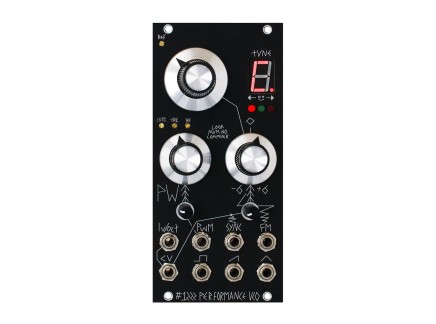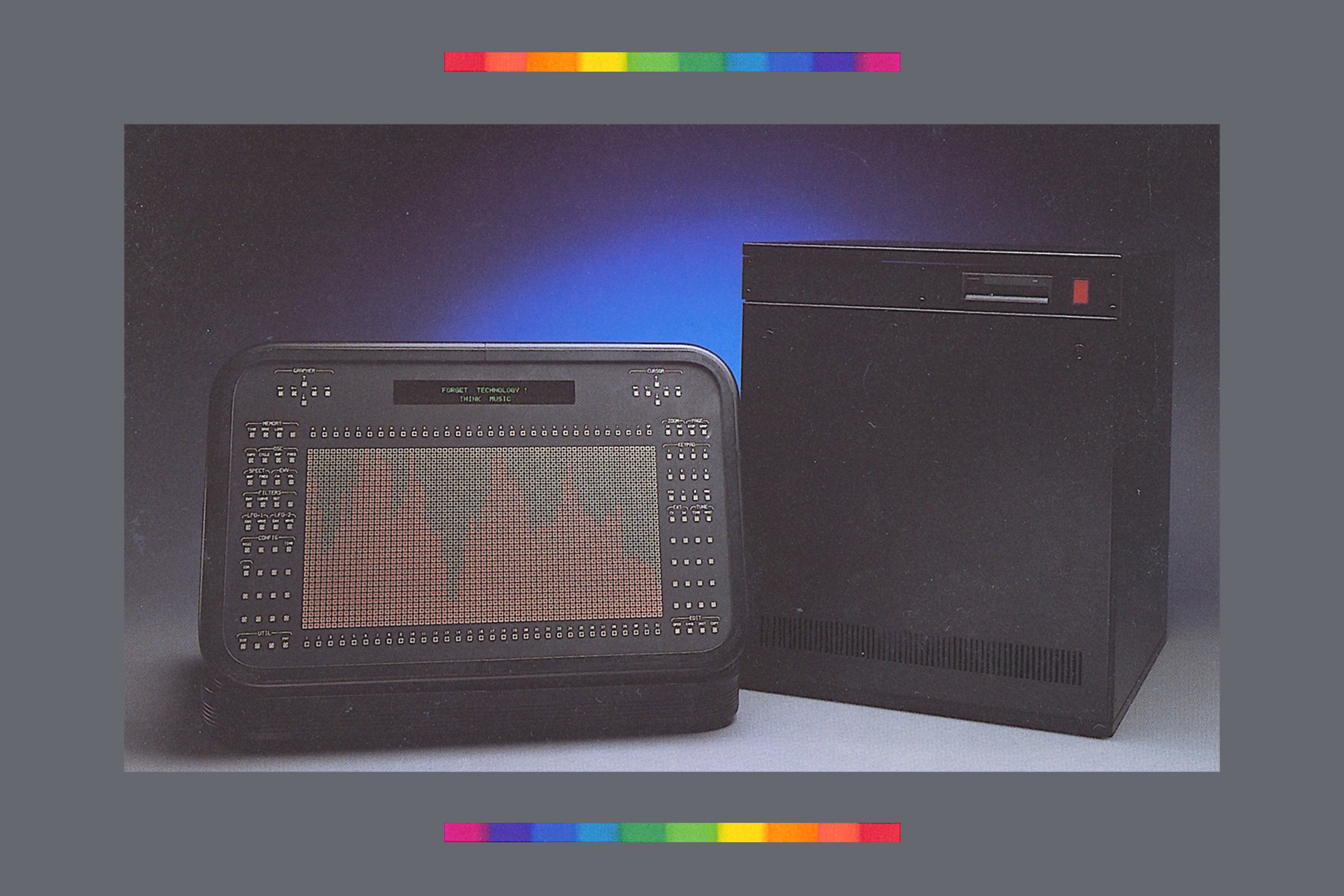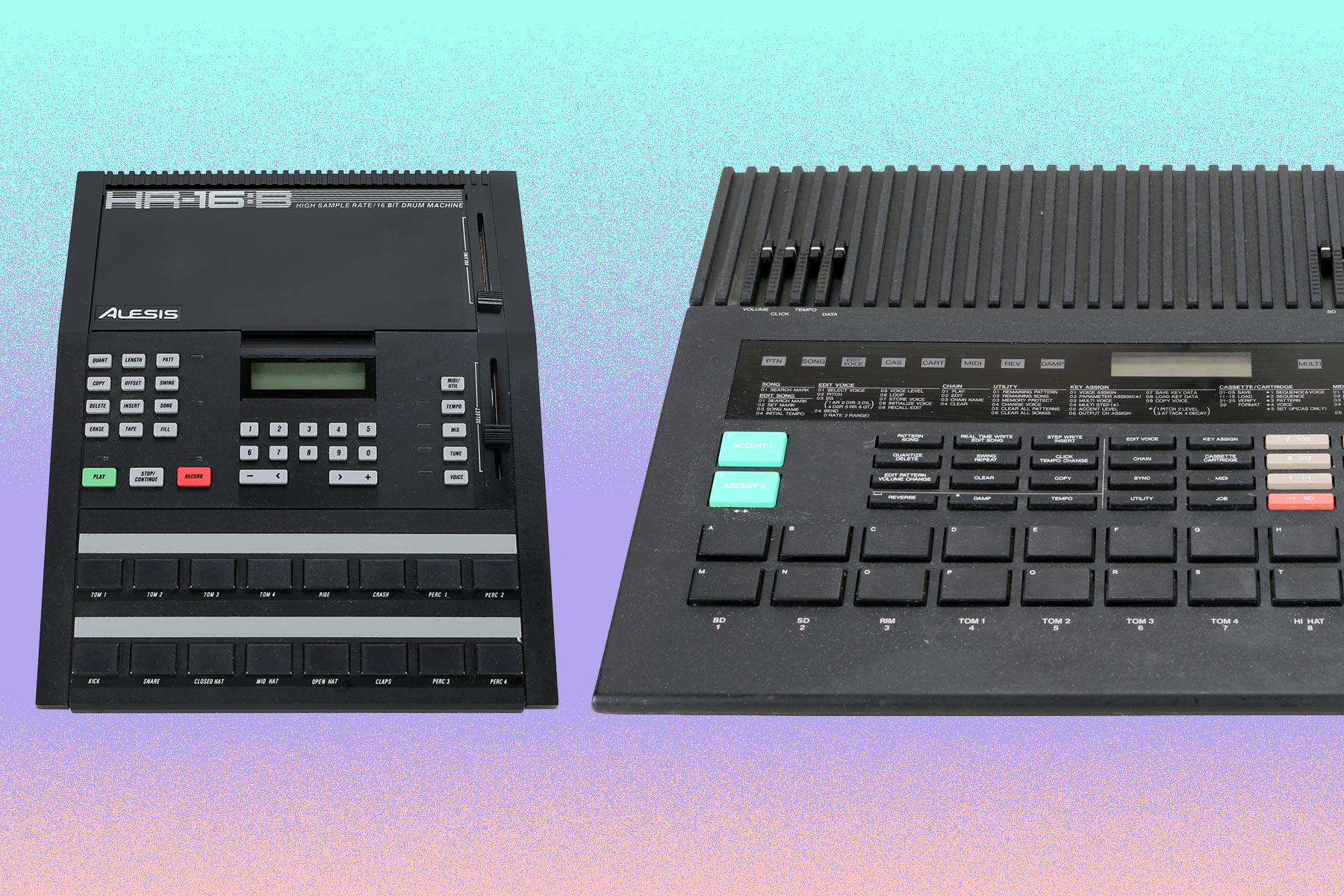Coming in with a pre-Superbooth announcement, we're happy to present a peculiar reality: Look Mum No Computer is making Eurorack modules, starting with the brand new #1222 Performance VCO. Created in collaboration with new Eurorack manfuacturer Funque Mod, the #1222 Performance VCO is the first official Eurorack release based on a LMNC Kosmo format module.
If you're not familiar with the LMNC universe, you might wonder what makes this so special. On its surface, the #1222 Performance VCO might look fairly simple—but in reality, it's a workhorse module with a ton of niceties for live performance. Let's take a quick look at LMNC, and talk about what makes this particular module so interesting.
LMNC's Kosmo Format Modular System
Sam Battle, also known as Look Mum No Computer (or LMNC, for short) is one of the most peculiar and colorful figures currently working in the realm of YouTube/Patreon electronic music education/entertainment. A self-described "backyard engineer," Battle is a self-taught musician, circuit-bender, electronic instrument designer, and the the curator/owner of This Museum Is (Not) Obsolete, a functional museum full of technological oddities, electronic instruments, and many of his own creations. He has gained a huge amount of public attention from his YouTube channel, where he shares live performances, tutorials, rundowns of bizarre old equipment, and loads of inspiration for anyone interested in the weirder corners of electronic music gear/music/sound design. I think it's fair to say that he's basically the mad scientist of music tech.
One of Battle's ongoing projects is the Kosmo format modular synthesizer—a synth format developed for his own purposes, using his own quirky, yet awesome-sounding designs. The Kosmo modular system began purely as a personal project, intended to be a "'more useable' version of Eurorack." In short, Kosmo format modules adhere to the Eurorack power supply/connector standard, and use the same voltage ranges for audio and CV as Eurorack modules. However, they have different panel dimensions and jack sizes. Where Eurorack uses 3.5mm jacks and 3U high panels, the Kosmo system uses 1/4" jacks and 5U panels—making for a much more spacious design. However, these physical specifications aside, Kosmo format modules are completely compatible with Eurorack...again, they even use the same type of power supply.
Beginning in 2020, Battle started releasing Kosmo modular kits on his own online store, releasing a single panel/PCB set per month. These are strikingly affordable, making it quite easy/accessible for industrious DIY-ers to build their own bizarre, esoteric, and downright fun modular system. However, interest in these modules extends beyond the DIY realm—they sound great, look awesome, and they're a ton of fun to use. So, given the demand and their inherent compatibility with Eurorack synthesizers, it comes as no surprise that we're now beginning to see Kosmo modules appear in Eurorack format.
LMNC #1222 Performance VCO
The #1222 Performance VCO is the first of a series of Kosmo format modules to be released in Eurorack format by Look Mum No Computer and Funque Mod. Plans for future modules have not yet been disclosed, but we look forward to what else they have up their sleeves.
At first glance, the Performance VCO might seem like any other analog Eurorack oscillator, albeit with a more highly stylized character. It's true, it features all the "standard" functions you'd expect to find on such a design: dedicated outputs for square, saw, and triangle waveshapes, 1V/oct CV input, scaleable CV input, FM input, sync input, and PWM CV input with attenuator and offset control. These are the makings of an excellent analog oscillator, to be sure...but what makes this particular one special?
Part of it is certainly the LMNC charm. This is going to be a raw, intense and highly musical design. Combining sync, PWM, and FM will no doubt yield tones ranging from smooth to crushingly brutal. But what makes this modular particularly suited to performance, as implied by its name?
Tone aside, it's about all the niceties built in to the module for tuning. It's exceptionally easy to lock this module on to highly specific pitches thanks to a number of well-considered features. First, rather than having a coarse tuning knob and fine tuning knob, this module instead features a a 5-position octave switch (the largest knob on the panel) and a fine-tune knob with a one-octave range. This makes it super easy to dial in the exact range you want. What's more, the onboard seven-segment LED display can show you the note nearest to your oscillator's pitch, and whether the oscillator is currently flat, sharp, or dead-on—making it super simple to get precisely in tune, even without needing to hear things.
And, in the event things ever get a little out of whack and you need to calibrate things, all of the tuning trimpots are easily accessible from the front panel. It's unlikely that you'll need to access these—but in the event that you do, it's a huge deal that you don't have to remove the module from your case to recalibrate the tuning. Having re-calibrated my fair share of oscillators, I have to say that this is a super important feature that should honestly just be a given...but oddly enough, it isn't. It's a bit of a nitpicky detail, but that shows me just how much thought went into the design, specifically as pertains to tuning accuracy.
Given the focus on pitch accuracy, it's easy to imagine a performance rig with multiple #1222 oscillators, either in stacks or as the basis of completely separate voices. It's got a load of charming timbral opportunity, it checks all the boxes that an analog oscillator should, it's great for setups that need quick/easy tuning references, and it's got the edgy charm of all of the Kosmo format designs.
While we don't yet know the plans for further Look Mum No Computer Eurorack modules, we're certainly eager to see what's next.











